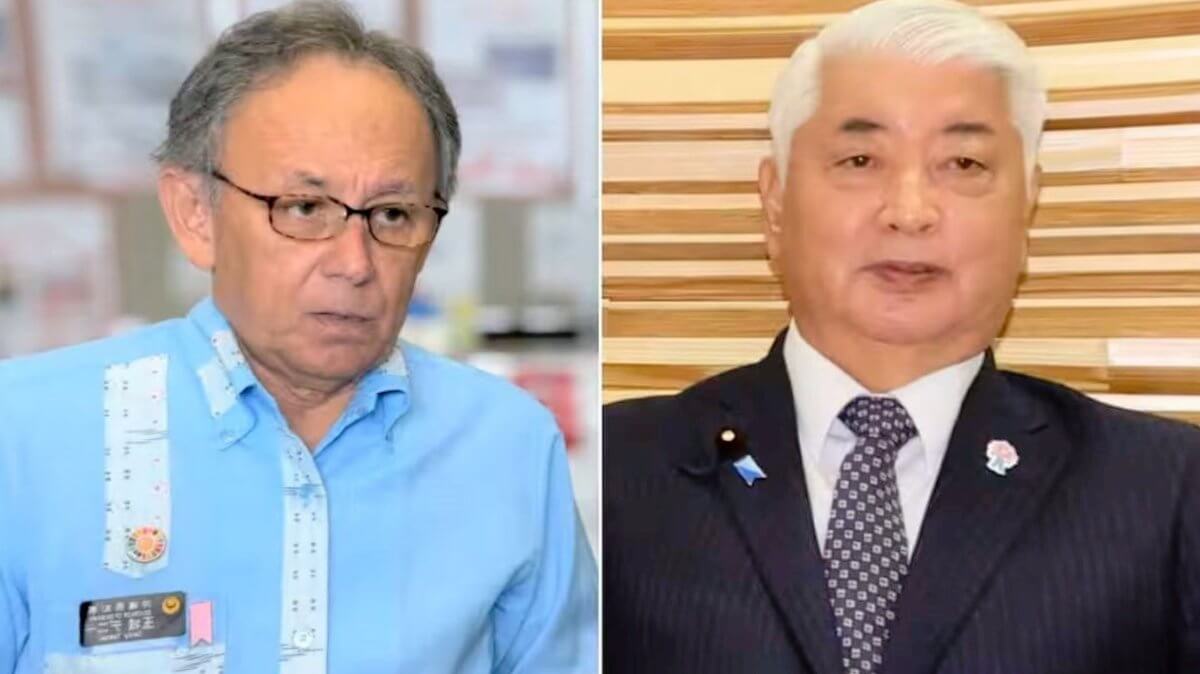In the sun-drenched islands of Okinawa, a persistent clash between local activists and military forces is testing Japan’s national security strategy.
As regional threats from China and North Korea loom larger, a vocal minority of leftist protesters continues to disrupt Self-Defense Force (SDF) operations, while recent U.S. military misconduct has fueled broader anti-base sentiments.
These developments highlight the delicate balance between local grievances and geopolitical necessities in this strategic outpost.
The Nansei Islands, stretching toward Taiwan, remain a frontline in East Asia’s security landscape. With U.S. bases hosting over half of America’s 54,000 troops in Japan on just 0.6% of the country’s land, Okinawa bears a disproportionate burden.
Historical scars from World War II, when nearly a third of the population perished in the Battle of Okinawa, compound modern frustrations over noise, environmental damage, and crime linked to foreign troops.
Recent Disruptions to SDF Training
A fresh wave of interruptions struck in mid-September 2025, when protesters blocked a key supply transport drill on Miyakojima Island.
Part of the joint Japan-U.S. “Resolute Dragon” exercise, the operation aimed to simulate island defense logistics but was canceled after about 15 members of the Miyakojima Residents’ Liaison Committee Against Missile Bases formed a human shield at Hirara Port on September 13.
Chanting “Don’t treat Miyakojima as a battlefield for training,” the activists prevented vehicles from unloading from a civilian vessel chartered by the Defense Ministry.
One protester told reporters, “We acted as human shields. Without that, I believe [the Ground Self-Defense Force vehicles] would have landed.” Police urged dispersal for obstructing traffic but took no further action after the cancellation.
This incident echoes earlier disruptions, such as a January helicopter landing aborted during disaster relief training in Nago City due to opposition activists.
Defense officials view these as threats to preparedness, potentially weakening deterrence in a region marked by Chinese assertiveness and North Korean missile tests.
Sexual Assault Cases Spark Widespread Outrage
Compounding the tension, a series of alleged sexual assaults by U.S. service members has ignited renewed protests. In May 2025, Okinawa’s government lodged formal complaints after Marine Pfc. Austin R.
Wedington was indicted for assaulting a Japanese base employee and injuring another woman in March. This marked the fourth such case in a year, prompting Vice Gov.
Takekuni Ikeda to declare, “This incident has had a tremendous impact on [Japanese employees], questioning whether they can go to work safely.”
Protests peaked in August 2024, when 2,500 rallied in Ginowan against these crimes, coinciding with the 20th anniversary of a 2004 U.S. helicopter crash at Okinawa International University. Gov. Denny Tamaki, addressing the crowd briefly, said, “It’s legitimate that us, the Okinawans, speak out against the government.”
All Okinawa co-chairman Susumu Inamine criticized Tokyo’s handling: “The government of Japan, which does not protect Okinawa and its people, cannot be called a democratic country.”
Other cases include Air Force Senior Airman Brennon R.E. Washington’s conviction for assaulting a minor, now under appeal, and pending trials for two Marines.
In response, U.S. Forces Japan imposed liberty restrictions in October 2024, banning off-base drinking from 1 a.m. to 5 a.m., but protesters question their efficacy.
Struggles of the Peace Movement
Okinawa’s long-standing peace movement, rooted in anti-militarism, faces internal challenges as military buildup accelerates. Weekly sit-ins at Camp Schwab protest the Henoko base relocation, but veteran activist Suzuyo Takazato, 84, notes dwindling youth participation: “Some young people say that, you know, there is no way to kick all the base out. This is a discouragement to them.”
Younger generations, like 26-year-old Nitsuki Karimata, pivot to peace tourism and studies: “Young people don’t want to join the movement’s sit-ins, but we definitely want to do something for peace.” Gov. Tamaki accepts the U.S.-Japan alliance but seeks burden reduction: “Because U.S. military bases are overly concentrated in Okinawa, I’ve been telling the Japanese government to reduce the excessive burden.”
Expert Fumiaki Nozoe highlights Tamaki’s dilemma: “The governor must conflict with the central government on issues of U.S. military bases. On the other hand, he or she must ask the central government for cooperation on issues of economic development.” A poll of Japanese governors showed 21 favoring lighter loads for Okinawa, yet none willing to host bases themselves.
Broader Security Implications
These protests risk undermining joint U.S.-Japan efforts, especially as alliances strengthen against regional threats. A May 2025 forum at Camp Foster aims to foster cooperation between U.S. forces, Okinawan leaders, and communities. However, ongoing disruptions could signal vulnerabilities to adversaries.
Public opinion in Okinawa remains divided. While activists decry militarization, many residents appreciate SDF’s disaster relief roles in typhoon-prone areas.
Festivals at bases, like one at Camp Schwab, draw locals who view the military presence as normalized: “We don’t particularly support or oppose the bases. In our daily lives, we just take it for granted that they exist,” said attendee Takaya Katayama.
Environmental concerns, such as PFAS contamination from bases, add layers to the debate. Protester Chiemi Yonashiro voiced anger: “The sky is dangerous because of the Ospreys; the water is dangerous because of PFAS.” Osprey flights resumed in March 2024 after a fatal crash investigation blamed human error.
Path Forward: Dialogue and Reform
As Japan bolsters defenses in the southwest islands, bridging the gap between local autonomy and national security is crucial. Calls for stricter military discipline, victim compensation, and community outreach grow louder.
Tamaki advocates trust-building with Asian neighbors: “Building peace does not necessarily mean countering threats. We’d like to build mutually trusting relationships.”
Yet, with 70% of Okinawans deeming the base concentration unfair, sustained dialogue is essential. The evolving situation in Okinawa not only shapes domestic politics but also influences Asia-Pacific stability, where internal divisions could be exploited amid escalating rivalries.
In this pivotal region, resolving these tensions will determine whether Okinawa emerges as a symbol of resilience or a flashpoint for conflict.

